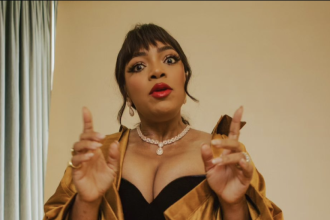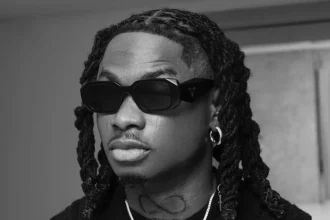After nearly 80 years, Nigerian cinema will finally have its moment at the prestigious Cannes Film Festival this Sunday.
The selection of “My Father’s Shadow” marks a major milestone for Nollywood, the prolific Lagos-based film industry known for producing up to five films daily.
For decades, Nollywood has been dismissed for its low-budget, high-volume output of dramatic stories about love, poverty, religion and corruption, often featuring supernatural elements and clashes between tradition and modernity. While these films have long been popular across Africa and the diaspora, Nigerian producers admit they’ve struggled to reach wider global audiences.
Prince Baba Agba, cultural advisor to President Bola Tinubu who is attending the Cannes premiere, sees this as a turning point. “Getting into competition for the first time ever shows that Nigerian cinema has come of age,” he said. The selected film, Akinola Davies’ “My Father’s Shadow,” explores Nigeria’s pivotal 1993 military coup through the eyes of two young boys in Lagos.
Davies described this historical moment when “the rug was pulled away and everyone’s dreams of democracy were just taken away.” The semi-autobiographical film stars “Gangs of London” actor Sope Dirisu and represents more than just a one-off success for Nigerian cinema.
Recent years have seen several Nollywood breakthroughs, including Editi Effiong’s crime thriller “The Black Book” topping Netflix global charts last year and winning top spots in unexpected markets like South Korea. Other notable achievements include “Shine Your Eyes” winning at Sundance and “Eyimofe (This Is My Desire)” being added to the prestigious Criterion Collection.
The industry now produces films at all budget levels, from $10,000 productions to million-dollar ventures, all showcasing Nigeria’s unique storytelling traditions. Pending tax breaks for filmmakers could further boost Nollywood’s global expansion through streaming platforms and international co-productions.
While major platforms like Netflix initially invested heavily in Nigerian content during the pandemic, recent challenges include Amazon closing its African operations. Local producers like Mo Abudu’s Ebonylife Group are stepping up to fill the gap, preparing to launch their own streaming platform.
“We will start small and we will build… We can’t keep waiting on everyone else to do this for us,” Abudu said.
Despite infrastructure challenges – particularly the reliance on mobile viewing – the industry continues to grow. Plans are underway to double Nigeria’s cinema screens to 300, though this still lags behind comparable markets like Brazil.
Nollywood’s Cannes breakthrough comes as Nigerian culture enjoys unprecedented global recognition, with Ebonylife’s Mo Abudu recently named the most influential woman in international film by The Hollywood Reporter. As Afrobeats music dominates global charts, Nollywood’s rising prestige signals Nigeria’s growing cultural influence worldwide.







